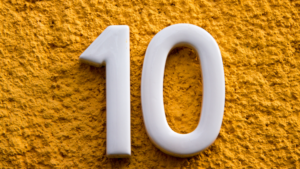
Keep your eyes open when you attend the Rite of Election. Notice what happens. Here are ten questions (in no particular order) to help you sharpen your observations.
1. Did each catechumen have a godparent?
They should. The godparents have an important role in this rite. No group godparents, please. Each catchumen should have somebody who is there for them, and who can testify before the community of faith on behalf of that catechumen.
2. Did the bishop sign the book of the elect?
He shouldn’t. It’s not in the rite. It’s not in the tradition. It makes no sense. The book is for the catechumens to sign, not the bishop. Some dioceses began having the bishop sign the book because in the beautiful books from Liturgical Press there is a line at the bottom of the page for the bishop’s name. I have it on good authority, however, that when the press designed that book they had no intention of creating a new ritual. The space for the bishop’s name records who presided. You can write it in later, but please not during the rite itself.
3. If you celebrated the combined Rite of Election and Call to Continuing Conversion, could you tell the difference between the catechumens and the baptized candidates?
You should be able to. According to National Statutes #30, Those who have already been baptized in another Church or ecclesial community should not be treated as catechumens or so designated. If it looks like everybody is doing the same thing, something’s wrong.
4. Did the bishop greet each catechumen or group of catechumens personally during the rite?
He shouldn’t. The receiving line happens after the celebration, not during it. The bishop is the presider at liturgy; he is not a minister of hospitality. The purpose of the rite is not to have the bishop meet the catechumens or the catechumens meet the bishop. The purpose of this rite is rather to celebrate their election by God and the Church, in preparation for the Easter Sacraments.
5. Were the names called as the catechumens come forward to sign the book of the elect?
They shouldn’t be. The calling of names happens earlier in the rite, in preparation for the Affirmation by the Godparents and the Assembly. In fact, that is why their names are called—so that we know who is being affirmed. Once that affirmation has taken place, there is no need to call their names again. They may inscribe their names in the book of the elect in any order.
6. Did the godparents speak up audibly (strongly) when asked to affirm their catechumens?
They should. If necessary, you could practice this with them at home before going to the Rite of Election. A weak response is a poor sign. The affirmation is saying, in effect, Yes, this person is ready to go forward to the sacraments! If the godparents really believe it, they should speak up.
7. Were the names called out individually?
They don’t have to be. At the Rite of Election, the catechumens may be called forward in groups if there are too many. But if they are not called by name in this rite, they MUST be called by name in a special celebration beforehand. In fact, this provides the warrant for the Rite of Sending (see the rubrics for RCIA 130).
8. Did the bishop preach about election?
He should. It says so in the rite itself. The celebrant should open to all the divine mystery expressed in the call of the Church and in the liturgical celebration of this mystery. (RCIA 125). The rite makes no bones about it. The mystery is God’s election. This step is called election because the acceptance made by the Church is founded on the election by God, in whose name the Church acts. (RCIA 119).
9. Did the catechumens sign the book of the elect during the rite?
They don’t have to. The book may be signed at the parish, if signing at the diocesan celebration would be cumbersome or take too long. Be warned, however. If you don’t sign the book at the diocesan rite, something else has to take its place at this point in the ritual—usually a presentation of the books brought from the parishes. This can be done with ceremony, and should be reverent and impressive as a ritual act. Stacking up books on a table is a poor witness to the value of this symbol.
10. Did you get a sense that the elect are being called to mission?
You should. Election is for mission. God calls us so that we may share in the very mission of Christ. God calls us to be light for the world, not merely to bask in the light of Christ ourselves. If we forget the mission, election becomes little more than a feel-good moment. But if we remember the mission, everything else makes sense—including the need for purification, through the Scrutinies that are to come.
Happy Rite of Election, everyone!









